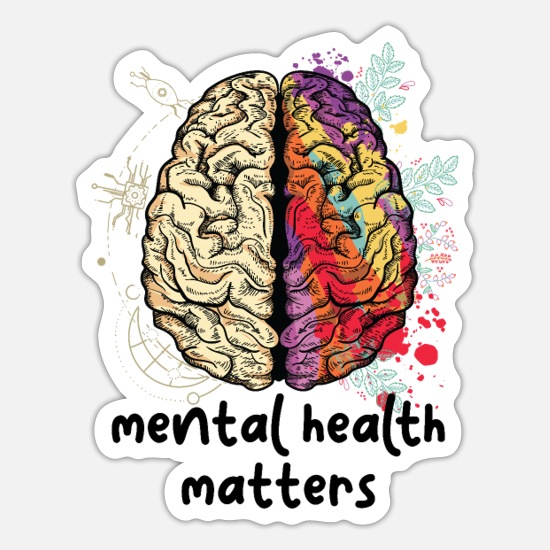In today’s fast-paced world, mental health is often overlooked until it significantly impacts daily functioning. Recognizing early warning signs is crucial for seeking timely intervention and preventing more severe mental health issues. Identifying these symptoms can be challenging, especially since they can manifest differently in each individual. This article explores common early warning signs that suggest it’s time to pursue mental health treatment.
1. Persistent Mood Changes
One of the most common early indicators of mental health issues is a noticeable shift in mood. While everyone experiences fluctuations in their emotions, persistent feelings of sadness, irritability, or mood swings can be cause for concern. For instance, individuals who find themselves experiencing overwhelming sadness or hopelessness for weeks at a time might be dealing with depression. Similarly, extreme irritability or mood swings could signal bipolar disorder. If these mood changes interfere with daily life or personal relationships, it’s essential to consider seeking professional help.
2. Withdrawal from Social Activities
Social withdrawal is another significant warning sign. When someone begins to avoid social interactions, withdraw from previously enjoyed activities, or isolate themselves from friends and family, it can indicate underlying mental health issues. This behavior might be linked to anxiety disorders, depression, or other mood disorders. Social withdrawal often stems from a lack of motivation or energy, feelings of inadequacy, or fear of judgment, all of which are symptoms that warrant professional attention.
3. Changes in Sleep Patterns
Significant changes in sleep patterns, whether it’s insomnia, excessive sleeping, or frequent nightmares, can be indicative of mental health problems. Difficulty falling or staying asleep, or sleeping too much, can both signal anxiety and depressive disorders. Sleep disturbances can exacerbate need mental health treatment health conditions and affect overall well-being. Monitoring changes in sleep habits and discussing them with a mental health professional can help address the root cause and improve sleep quality.
4. Unexplained Physical Symptoms
Mental health issues often manifest through physical symptoms. Frequent headaches, stomachaches, or unexplained aches and pains can be linked to stress, anxiety, or depression. These symptoms can sometimes precede or accompany mental health issues and should not be ignored. When physical ailments persist without a clear medical cause, it’s essential to consider whether they might be related to mental health and discuss these symptoms with a healthcare provider.
5. Difficulty Concentrating or Making Decisions
Struggling with concentration, decision-making, or memory can be early signs of mental health challenges. Conditions such as depression, anxiety, and stress can impair cognitive functions, making it hard to focus on tasks, make decisions, or remember important information. If cognitive difficulties persist and impact daily life or work performance, it might be time to seek professional help to address the underlying mental health issue.
6. Changes in Eating Habits
Significant changes in eating habits, such as sudden weight gain or loss, changes in appetite, or abnormal eating patterns, can also indicate mental health issues. For instance, eating disorders like anorexia or bulimia are directly related to mental health struggles. Even if the change in eating habits doesn’t align with an eating disorder, it can still reflect underlying stress or emotional issues. Consulting with a mental health professional can help identify the cause and provide appropriate treatment.
7. Increased Substance Use
A noticeable increase in the use of alcohol, drugs, or other substances can be a coping mechanism for underlying mental health issues. Substance abuse often accompanies or exacerbates mental health problems such as anxiety, depression, or trauma. If someone finds themselves relying more heavily on substances to manage emotions or cope with stress, it’s crucial to seek help. Substance abuse can complicate mental health issues and lead to further health complications, making early intervention even more critical.
8. Persistent Feelings of Guilt or Worthlessness
Persistent feelings of guilt, worthlessness, or self-blame can be indicative of depression or other mental health conditions. Individuals experiencing these feelings may struggle with self-esteem and self-worth, which can severely impact their quality of life. Recognizing these feelings and discussing them with a mental health professional can provide insight into their origin and help develop strategies to manage and overcome them.
9. Irrational Thoughts or Paranoia
Experiencing irrational thoughts, paranoia, or delusions can be a sign of more severe mental health conditions such as schizophrenia or severe anxiety disorders. These symptoms might include believing in unrealistic scenarios, feeling constantly threatened, or having trouble distinguishing between reality and hallucinations. Immediate professional help is necessary to address these symptoms and ensure proper diagnosis and treatment.
10. Difficulty Functioning in Daily Life
Finally, any significant difficulty in managing daily responsibilities, such as work, school, or home life, can signal that mental health issues are at play. When mental health struggles interfere with one’s ability to perform daily tasks, it’s important to seek help. Professional treatment can provide strategies and support to manage these difficulties and improve overall functioning.
Recognizing
These early warning signs and seeking mental health treatment promptly can make a significant difference in managing mental health conditions. It’s essential to remember that reaching out for help is a sign of strength, not weakness. Mental health professionals are trained to provide support, guidance, and treatment to help individuals navigate these challenges and lead healthier, more fulfilling lives. If you or someone you know is experiencing these symptoms, consider contacting a mental health professional to explore appropriate treatment options.



